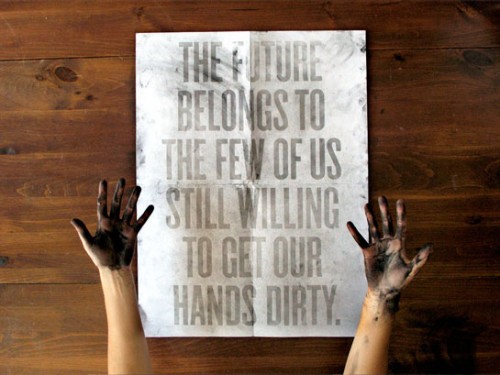A guest post by Vanessa Deering*
On “How NOT to respond to bad press” I think you make many valid points and I wholeheartedly agree that as an industry we should avail ourselves to a more authentic dialogue that addresses the inefficiencies of aid. We should work on acknowledging, openly, collectively, where we can do better. We should better educate the donor public on timeframes, constraints, political/cultural context, strategic intention and expectations from the beginning – and accord the same level of accountability and transparency to our beneficiaries. And we should encourage forums that facilitate honest discussions about why it is difficult to do this work well.
I’ll take it a step further and say that we should also dispel the myth that aid workers are martyrs, or should be. We are not martyrs. We are educated, committed individuals who desire change, impact, human connection, less suffering, cultural understanding, adventure, alternative lifestyles, access to the world and a plethora of other things that make us human not saint. It is a job, a sometimes big job that comes with real responsibility, and hopefully we are able to give something back while getting something out of it, because we are normal people, like anyone else who seeks job satisfaction and balance in life.
While I understand where you are coming from, where I disagree with you is your question regarding why individuals feel they should respond in much the same way as the agency – and the perceived sense of disappointment about the response from your former colleagues. It is a valid question and one worth posing, but I don’t think there is a one size fits all answer. You can simultaneously support the efforts and work being implemented on the ground and reflect on the things that are systemically problematic; one does not preclude the other.
In our personal social media worlds we don’t have to tow the company line, but (and I will speak from the field perspective) for field staff, national or international, it is understandable why we may feel angry and want to defend the work – because we eat, breathe and sleep it every day. Because as national staff you may have lost multiple loved ones to the disaster and because it is your country; because as international staff you have respect for and commitment to the staff who are purveyors of recovery within their own communities. And because, simply put, we believe in what we are doing, even if it is not always perfect.
When an article like ProPublica is published it opens space for debate, but where that critique is most needed to instigate change instead often falls on the ears of those who are a part of the daily grind, who have a personal connection to the work, who put in long hours, and who must continue to get work done at the ground level because there are commitments to communities that will be honored long after an article ceases to capture the public’s attention. I think it is fair to say that we feel an immediate and personal backlash because we are intimately connected. Maybe it is a little about identity, but that’s ok.
Amidst all of the opinion making, authoritative condemnation, and at times misinformed accusations from individuals and media outlets, it is not unreasonable to feel maligned by an article that has generated much vitriol, and seek solidarity amongst those who have been there and are “in it together.” And it is not fair to intimate that only the public has a right to be outraged, while those dedicated to the work on the ground (or those working at headquarters) who have forged strong relationships with partners, communities and local authorities should absorb every smack and assume an immediate zen-like state of introspection. We are individuals, not just an institution, and as individuals we incur much of the wrath directed at the institution.
Let’s have these tough conversations that you mention, but let’s also allow for emotion and an expressed displeasure for bias, lack of nuance and superficial reporting bereft of deep analysis. Emotion can be channeled in many positive directions – one of which may lead to reflection – but reflection is usually most productive after a bit of time has passed.
On a fundamental level I embrace all that you wrote. As aid workers we should push for transparency and accountability, and many of us do, not because we have to, but because it is the right thing to do. This is not always obvious to the public, and perhaps that too is where we could all do better. On a human level, sometimes we need the support of our tribe to weather the storm.
I think being a good humanitarian allows for both.
*The comment shared here reflects the opinions and experiences of the writer, not any organization.

